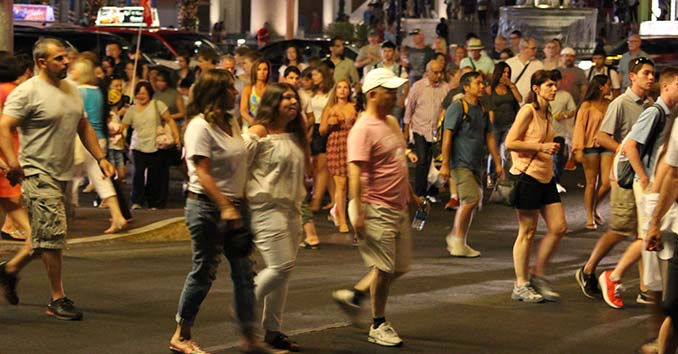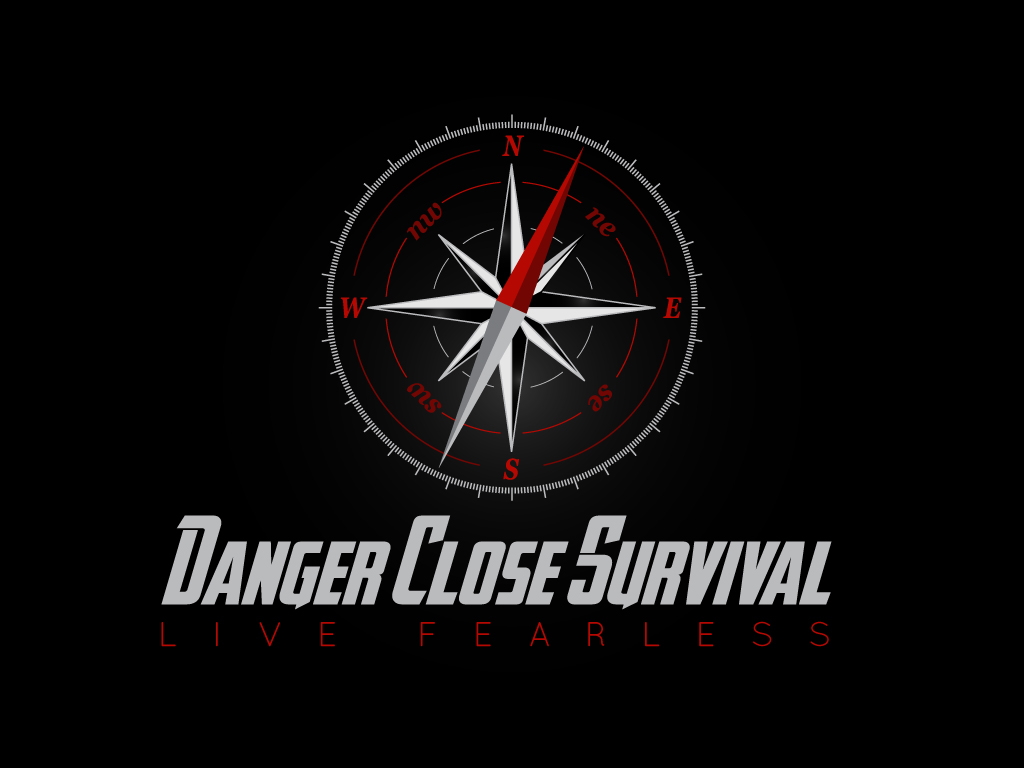Situational Awareness: How to Protect Yourself by Developing your Situational Awareness
I’ve read hundreds of articles on Situational awareness, and I’m usually left scratching my head, wondering how many of these authors can even pretend to write about a subject they know nothing about.
Most of the stuff out there seems like a bad technical manual, written by some egghead professor that did a couple of studies in a laboratory so he can claim to be an expert. While many of these people can probably scientifically describe what the term means, admittedly better than I can do, none of that means shit in the real-world! These people haven’t lived a life where they had to use these skills to stay alive; what do they know about real-world applications?
I’m not going to spend all day giving you some scientific definition of the words, or quoting a bunch of stupid studies that will do nothing for you when things go bad. I mean do you really want to know the technical color codes or a bunch of mumbo jumbo that means absolutely nothing when the not so theoretical shit hits the fan?
These things are all for analysts, or people who need to justify their jobs by creating complex flow charts, theoretical models, and technical terms to suck one more dollar from the tax paying public.
So what is Situational Awareness?

If you really want to know what it is, forget all the technical garbage. Situational Awareness is simply the ability to assess your environment for threats so that you can either avoid those threats or control the situation and start stacking things in your favor.
That’s it! No flow charts, no color codes, just awareness!
So what’s all the hype?
Well, from a preparedness perspective, I hope it’s obvious. There simply isn’t a more important survival skill that you can possess. If you can identify a threat before it becomes a threat, you put yourself ahead of 99% of the public, and you go a long way to ensuring your safety and security.
Unfortunately, in today’s world, this is a skill, or better yet a mindset that most people simply don’t have.
We live in a world where people live in a contact state of distraction. From walking around with their heads buried in some electronic device to stressing out about their day or trying to recall yet another thing that slipped their mind, most people are blissfully ignorant to the world around them.
So what should you do then, live in a constant state of paranoia?
This is an argument that you will often hear from people who are not prepared. Rather than do the work, they just claim that it’s paranoia. I mean why worry about what could happen, right?
“Just because you’re paranoid doesn’t mean they aren’t after you.”
All joking aside, when it comes down to it, it’s the people that do prepare who are the ones that are least likely to live in fear, or succumb to fear when things go bad. It is the preparedness minded individual, who is confident in his ability to assess threats on a subconscious level, who can walk through life without having to even consciously think about what problems they may face.
They don’t have to live in fear because they are confident in their ability to detect threats when they arise.
Why is Situational Awareness Important?

Well, let’s look at a couple of different scenarios.
You are at a theater watching a movie with your family, and the fire alarm goes off. A number of things could be happening right now. It could be a false alarm, it could be an actual fire, or even worse there could be an active shooter picking people off in the theater right next door. That’s the world we now live in.
In this situation, most people are going to panic.
You’re in a dark theater, children are probably crying, and adults are probably stampeding the aisles not knowing exactly what to do. But you, if you’re a situationally aware individual, already left ahead of danger. You smelled the smoke, heard the gunshots, or recognized the threat before the alarm was ever even pulled.
And if it was a false alarm, you weren’t injured by the panicked crowd because you calmly headed to the exit point that you instantly identified as you walked into the theater. While everyone else was running for the main entrance, you quietly and calmly helped your family slip out that little noticed side exit.
Criminals are experts when it comes to situational awareness!
We live in a world where it cannot be ignored; criminals and violent criminal attacks.
Unfortunately, when it comes to situational awareness many criminals are damn good at it; but even worse for you, is they are good at spotting people who are not! These people come into a situation with the upper hand; in most cases, they have diligently planned for what they are about to do, and they took the time to select the target that they felt was most vulnerable to an attack – usually the guy who is walking around totally oblivious to the world around him!
Listen, self-defense training is great; knowing how to use a firearm is a skill everyone should have, and I highly advise you go out and find a good self-defense school. That being said, none of it means anything without being aware of your environment. Any self-defense school that doesn’t stress that fact is a school you don’t need to waste your money on.
Your only real chance of not being targeted by these people is to be able to perceive the threat before it becomes a threat: Situational Awareness.
What can you do to Develop Your Situational Awareness?
Situational Awareness isn’t the supernatural ability that some Hollywood movies make it out to be; in fact, I believe it can be learned.

Remember, in real-life Jason Bourne is an Anti-Gun Jackass who couldn’t fight his way out of a paper bag, let alone recognize a threat!
Listen, I’m not going to lie to you and tell you this is something that is going to be easy. It’s not. But if you take the time to start looking at the world around you and running through some of these drills, you will start to develop the background skills you need to protect yourself.
Did you notice the word background in that last paragraph? Again, this is not living in a constant state of fear and paranoia. I know I said this wasn’t a supernatural skill, but it is a subconscious mindset that allows you to know when something isn’t right.
It’s that gut feeling that most people have been conditioned to ignore.
Step one: Mastering Mindfulness
Ok, I’m not going to go all hippie new age guru on you, but there is a concept that can help tie things together. Buddhists, and those who are into meditation practices, call it Mindfulness. But don’t worry, in the context of this article, it’s not a religious thing. What we are looking at here is the concept of releasing your stress, and fully becoming one with your environment. Simply put, you are present in the moment.
A lot of stress release and anti-anxiety therapies are built around this concept because it allows the person to stop thinking about their fears and anxieties and instead just live in the moment, really taking in the world around them – the sights, the sounds, and the baseline world. That is what’s important here.
It’s about recognizing that baseline. That state of how things are in the world when things are normal. By understanding your environment and being able to recognize the baseline realities of what’s going on around you, your subconscious mind will instantly be able to pick out what doesn’t fit and what things signal danger ahead.
Mindfulness, from a therapeutic standpoint, is simply the mental state achieved by focusing your awareness on the present moment, while calmly acknowledging and accepting your feelings, thoughts, and bodily feelings. Simply taking the time to release your anxieties, to relax, and just take in the world around you can do wonders for your overall situational awareness.
Step Two: Honest Analysis and Identifying Threats
Some of this information isn’t going to be politically correct, but if you’ve followed this site for a while you know that I excel in offending people! I don’t do it to be provocative; I just don’t live my life pussyfooting around other people’s P.C. bull crap or emotional insecurities.
I’m a realist. And I realize that we live in a world that has made people weak; a bunch of precious snowflakes who are so offended by everything in the world that they have become unable to recognize the real dangers in life and in our society.
Profiling people is an acceptable reality!
It’s not racist, sexist, islamophobia, or any other label that you want to attach to it; it’s reality.
The fact is criminals do fit certain profiles. Profiling has nothing to do with race, but it does have everything to do with appearance. Think about it; who is more likely to rob you, the 80-year-old black grandmother in the wheelchair or the teenager sporting gang colors and gang tattoos? Was the skin color important, or was the person’s overall appearance important?
Some of this stuff is just common sense, and some of it requires ignoring what the media tells you is wrong and right.
Step Three: Situational Awareness Drills, Games, and Tactics
So now to the meat of the article; the real-world things you can do to help develop a situational awareness mindset.
Before it can become part of your background thought process, or your subconscious mindset, you are going to have to be purposeful and do things to hone your skills.
- Play games with yourself; if you have kids include them in the process. When you enter a store, see how many exit points you can immediately identify. Look for obstacles, threats, or anything that could hinder your escape should something go
- Start watching people. Try to notice how people normally behave; what’s normal, what’s not? One of the best ways to spot trouble is to be able to read people’s behavioral quirks. I’ve never been in a fight that I didn’t see coming, and I’ve avoided quite a few because I picked up on things like body language, emotions, and changes in a person’s voice that told me something was about to happen.
- Limit outside distractions. When you are out in public you need to put down the phone, leave the electronic distractions at home, and really spend time being one with your environment.
- Start trusting your gut! At first you may be wrong, but in the end, you need to beware of those primal instincts that are built into your very being. The fight or flight response is a very real thing, something that can be used to your advantage if you can learn to control it and not give into the fear aspect which so many people in today’s society seem to be overwhelmed with.

 Next Post
Next Post